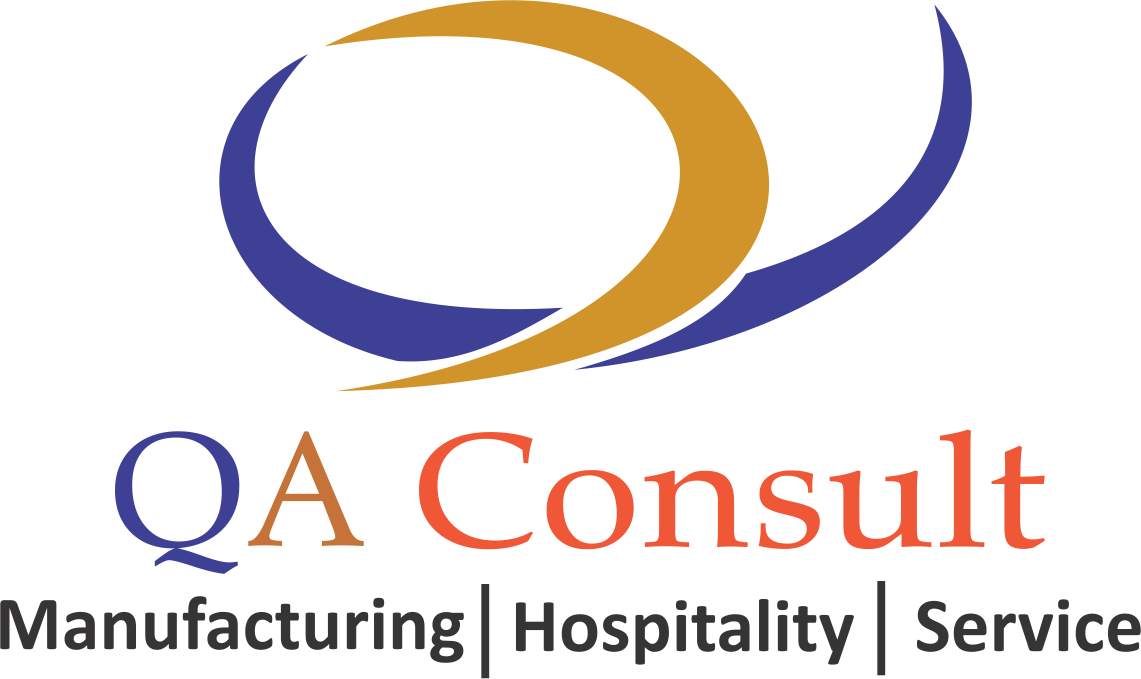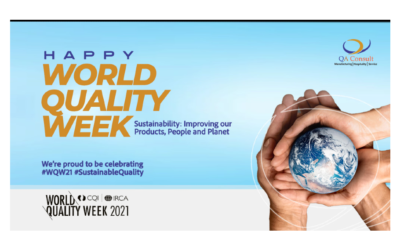ISO Standards and Industrial Excellence
Looking at the policy framework regarding this laudable programme, it is certain that some consultations have gone into the planning and I’m happy to note the technical aspects being sought from experts. In some of these discussions I’ve often heard the word ‘quality’ of the final products coming out of these factories being mentioned and I ask myself, to what extent? There is the need to start right and hence standards should be one critical area to look at. Fortunately, ISO Management Systems is available to steer any manufacturing set-up towards achieving product quality through effective Management System documentation and implementation.
ISO (International Organization for Standardization)
The International Organization for Standardization (ISO) is an independent, non-governmental international organization with a current membership of 163 national standard bodies. The Ghana Standards Authority (GSA) is a member of ISO and hence participates in many ISO meetings at both the National and International levels. Through these members, ISO brings together experts to discuss and share knowledge in various fields. The outcome of these knowledge-sharing meetings is the development of voluntary, consensus-based, market-relevant International Standards that support innovation and provide solutions to global challenges (www.iso.org).
Members of ISO are the foremost standards organizations in their countries. To avoid duplication of efforts and to have focused discussions on standards, there is only one ISO member per country. Each member represents ISO in its country.
Since it started operations on the 23rd of February 1947, ISO has published over 21,788 International Standards covering almost all aspects of technology and manufacturing (www.iso.org).
Standards
It is however important to note that, every market would require products to meet a certain standard before they can be accepted. There are certain standards that are peculiar to our local markets but to move out of our jurisdiction to sell on the global market, you would need an international standard to play on that turf.
What therefore is a standard? From the Merriam-Webster’s dictionary, there are several definitions of a standard but the one that resonates well with the discussion at hand is; a standard is something set up and established by authority as a rule for the measure of quantity, weight, extent, value, or quality.
ISO Standards as defined on the ISO website derives its roots from this definition but further breaks it down to how standards work. Accordingly, international standards make things work. They give world-class specifications for products, services and systems to ensure quality, safety and efficiency. International standards are therefore instrumental in facilitating international trade.
ISO standards covers almost every industry, from technology, to food safety, to agriculture and healthcare. In a training session organized for a group of people in the food industry, I was surprised to note the huge number of participants who did not know there are standards for the various sectors they were involved in. The Ghana Standards Authority Library has almost all standards for all sectors for a fee which in my opinion is affordable. ISO Standards can either be purchased online or at GSA.
Benefits of Standards
The publication puts forward three main economic benefits and I couldn’t agree more. The first benefit is that, international standards can be used to streamline the internal processes of a company. Projects such as waste reduction, increasing efficiencies and other similar projects can be achieved when standards are applied.
The second key economic benefit is the positive role standards play in innovation and scaling up of operations. In this regard, standards serve as the basis for innovating business processes, creating the enabling environment for expansion of suppliers’ networks, introducing new product lines effectively and other similar projects.
The third key economic benefit of standards is the opportunity it gives a business entity to penetrate new markets with its products and/or services. Subscribing to international standards opens the world to any company who is ready to take that opportunity.
Conclusion
Whether we like it or not, today’s world forces us to play on the global market. It is much easier to have an item delivered to you from abroad than it used to be some few years ago. If international standards are not adopted, it would even be difficult to market your products on the local market. It is strategically wise for organizations to prepare for a future where the only selling attraction would be the standards being applied to churn out products.
When that time comes, the market leaders would be those who started early and would be masters in producing products that meet those standards. For those who are into all manner of businesses, including those partaking in the one district one factory programme, never forget to build capacity in terms of standards, for that will be the game changer going forward.
Johnson Opoku-Boateng is the CEO & Lead Consultant, QA CONSULT (Consultants and Trainers in Quality Assurance, Health & Safety, Environmental Management systems, Manufacturing Excellence and Food Safety). He is also a consumer safety advocate and helps businesses with regulatory affairs. He can be reached on +233209996002, email: johnson@qaconsultgh.com.
Related Services
Management Review – A Must for Organizations
Management Review - A Must For OrganizationsThe beginning of every year sees a lot of New Year resolutions. Every individual is encouraged to reflect on the past year; on achievements and failures and feed the outcomes into the new year. Indeed, the role of goal...
Industry & Consumer Information with Johnson Opoku-Boateng: The Rise and Rise of Women in Business
Industry & Consumer Information with Johnson Opoku-Boateng: The Rise and Rise of Women in Business“Black female entrepreneurs don’t make excuses, we find solutions. We’re leaders – resourceful, ambitious, hardworking and creative. We’re powerful, unstoppable,...
This Week is World Quality Week 2021
This Week is World Quality Week 2021The Chartered Quality Institute (CQI) used to celebrate World Quality Day on the second Thursday in November. However, this year CQI is celebrating the World Quality Week from 8 to 12 November 2021. The QA (Quality Assurance)...
Get In Touch
HEAD OFFICE
Aviation Highway , East Airport ( Spintex)
Landmark: Endpoint Homeopathic clinic



